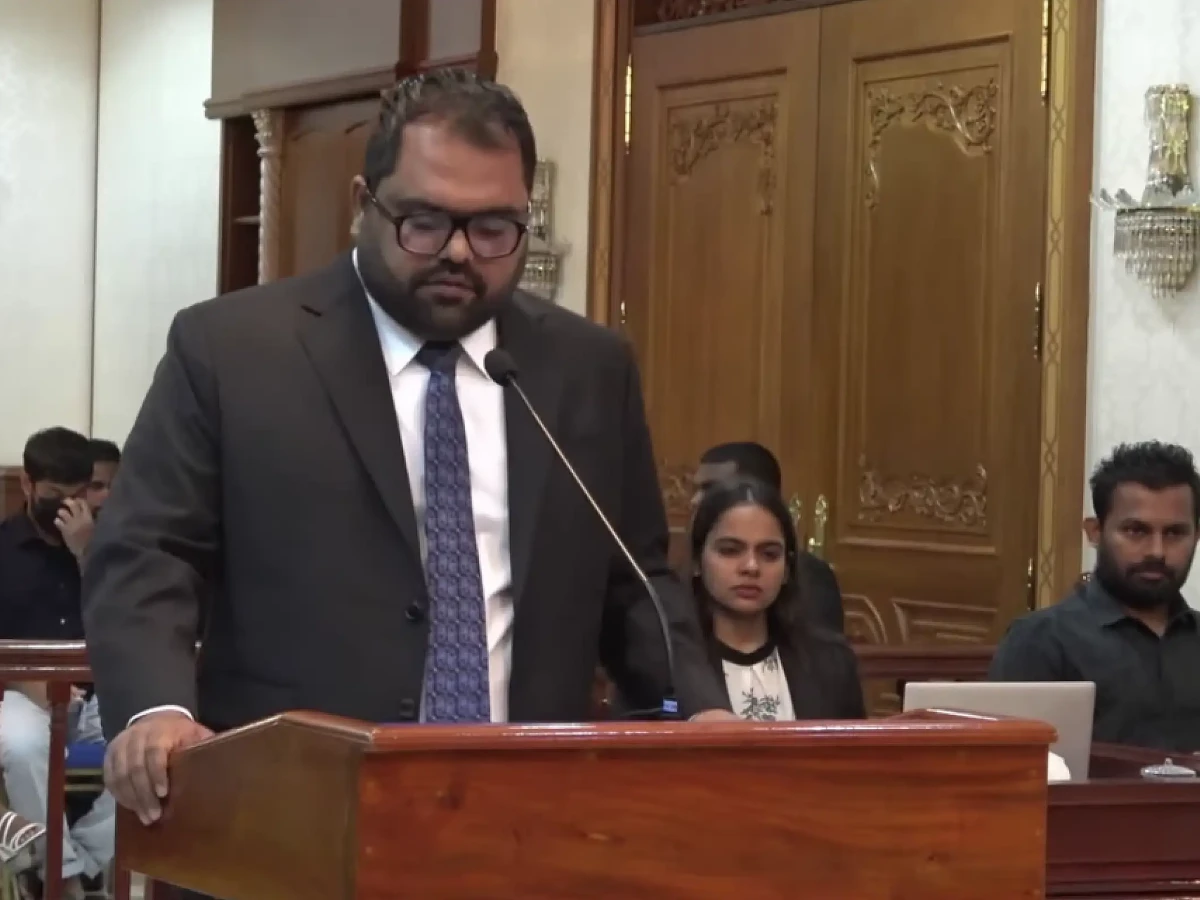
SC concludes hearing on ex-immigration chief's appeal on remand
Shamman was arrested on 21 March under a court order following the seizure of his passport.
Top Stories
-
MP Mauroof released from custody, receiving hospital treatment
-
House floor sinks in Malé during nearby construction work
-
PNF to hold special rally at Artificial Beach on Wednesday
-
MDP MP says Mauroof arrest may breach parliamentary privileges
-
Complaint filed with JSC over judge’s remarks on defence lawyer
The Supreme Court of the Maldives on Sunday concluded hearings on a petition filed by former Immigration Controller Shamman Waheed, who is seeking to overturn his remand pending trial. The court announced that it will deliver a decision after further review, though no specific date was set.
Shamman was arrested on 21 March under a court order following the seizure of his passport. He was presented before the Criminal Court on 22 March, which remanded him for 15 days. Subsequently, the Criminal Court ordered that he be held in custody pending trial.
Shamman’s legal team appealed both remand orders to the High Court, which upheld the Criminal Court’s decisions. He then submitted an appeal to the Supreme Court, which initially declined to accept the case. The court later reversed this decision after reviewing the registrar’s ruling.
Hearings at the Supreme Court were held in two sessions on the same day—one at 9:00 a.m. and the other at 1:00 p.m. During the sessions, both parties presented their arguments, and responses were heard from each side. Following the hearings, the bench stated that the matter was under review and a ruling would be issued if no further clarification was required.
Shamman is challenging two aspects of the High Court’s decision:
-
1-
The initial 15-day remand issued by the Criminal Court.
-
2-
The High Court’s position that the police could investigate corruption cases independently, without the involvement of the Anti-Corruption Commission (ACC).
Shamman’s lawyer, Noorul Salam, argued that Article 199 of the Constitution grants the ACC exclusive authority to investigate corruption-related offences. He contended that allowing the police to conduct such investigations without ACC involvement contravenes the criminal justice framework and sets a precedent for bypassing constitutionally mandated procedures.
Salam questioned how a case involving money laundering, which he characterised as rooted in corruption, could be pursued without ACC involvement. He highlighted that several cases are investigated jointly by the ACC and the police and stated that joint investigations do not lead to delays.
The majority opinion of the High Court had held that the police could independently conduct an investigation into alleged corruption offences linked to money laundering. The judgment stated that this did not contradict the Criminal Procedure Code and that interpreting otherwise would constrain police authority.
Responding on behalf of the state, prosecution counsel Hawwa Nahi maintained that the High Court had not denied the ACC’s role but ruled that the police could investigate such offences without referring them to the ACC in certain circumstances. She said the appeal did not raise legal questions requiring Supreme Court adjudication.
The prosecution requested that the Supreme Court dismiss the appeal on the grounds that it lacked legal merit and reiterated that the police have the authority to investigate corruption offences without ACC participation.




